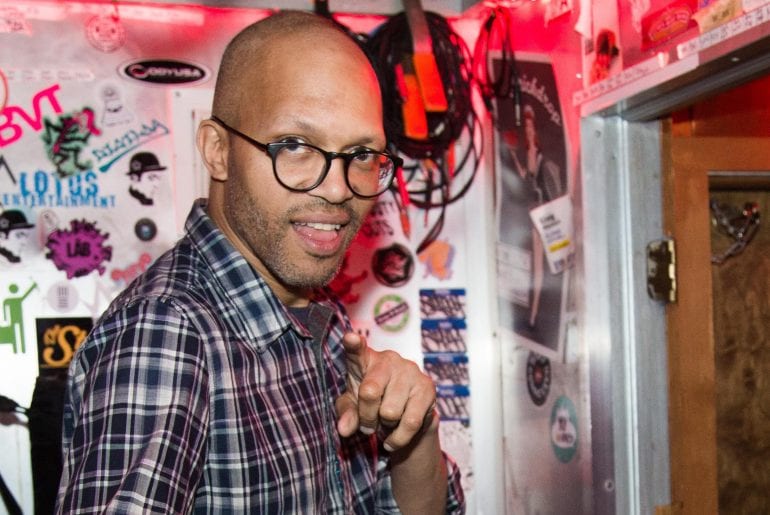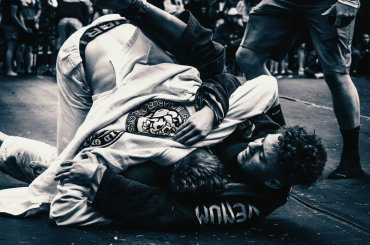As we all know, DJs around the world are hurting from canceled gigs and loss of income due to COVID-19. But one mobile DJ, Vermont’s Craig Mitchell, realized an opportunity to generate income by DJing from home.
For him, live-streaming his DJ sets has turned into a business model that pays. Mitchell’s clients are hiring him because they need these services. Yes, this is an actual business model for DJs, but the question is: How can any DJ replicate this model for his or her own company?
We spoke with the Burlington-based Mitchell and a couple of his clients to gain a clearer understanding of how it works. Read on to see if you think this is an opportunity for you.
Summary:
Community-based organizations who receive grant funding need to continue their programming in order to carry on their mission and qualify for future funding. They need to spend their budget in order to successfully continue benefiting the communities that they serve. The organizations vary in missions, but include supporting centers for the youth, addiction, LGBTQ groups, local arts, etc.
There is another similarity among these organizations. They host dance parties for the benefit of their communities. Through grant funding, a budget is allocated for events. Some organizations regularly host a weekly party. That’s changed since COVID-19 influenced lawmakers to limit group sizes, which is leading to lockdowns. The traditional in-person events that we’re all used to have become less permitted. In the U.S.A., lockdowns started to happen in mid to late March. As a result, live-streaming has become the new normal for communication.
We’ve transitioned to this new way of life known as social distancing. More than ever before, live-streaming is an essential communication tool for both social and professional needs. Community-based organizations are leaning towards shifting in-person events to live-streaming event. The concept includes hiring a DJ to live-stream for their private audience of community members. Due to the grant funds, organizations are able and willing to compensate DJs for their service.
How To Do It:
First, shift your focus from selling a physical DJ package to an online DJ package. Consider how you separate your brand from the competition. What marketing materials and digital platforms you use for your existing efforts that can be modified or updated to promote your new online package.
Next, develop your online DJ package and the features that your company will offer by considering the following:
- Streaming equipment and audio/visual quality.
- Capacity of attendees that your streaming network can host.
- Professionalism and design of the studio setup.
- Musical style.
- Number of hours that you can host a streaming party.
- Audience engagement using a microphone, props, games, costumes, etc.
Once your new package is ready, develop a game plan to sell it. Research the organizations in your area, then find out who handles events and entertainment programming. Here’s how:
- Start with pre-existing contacts that you’re already in touch with. Utilize those contacts to begin building a reputation in this area of DJ entertainment.
- Cold-emailing is a strong way to pitch your online DJ package (see Q&A for more tips).
- Host a free live-streaming party to showcase your new DJ package – and, of course, your brand, too.
- Take out an ad in your local newspaper or appropriate digital outlet.
- Spread the word with friends and family on social-media channels.
Q&A with Craig Mitchell
DJ Times: Should any DJ feel guilt for profiting off of a community-based organization during a global crisis?
Craig Mitchell: You have a population of people who are desperate for something to do. You have organizations with an unspent budget allocated to bring forms of entertainment to these people. And then you have this other population who are DJs that are struggling creatively and financially. So take all three aspects and throw it in a chili bowl for everyone to eat.
DJ Times: Within the first week that the Vermont governor Phil Scott declared a state of emergency shutting down all restaurants, bars, and cafes, how many people have you entertained through this new business model?
Mitchell: About 5,000 people between three live streams – one on a Friday night and two on Saturday.
DJ Times: Based on the results and feedback from the first three live streams, do you plan on continuing them?
Mitchell: Yes! In fact, they are my newest weekly residencies.
Q&A with Mitchell’s Clients
We connected with a pair of representatives from organizations that booked Mitchell’s services – Peter Espenshade, President of Recovery Vermont, and Johnny Chagnon, Assistant Event Coordinator of Pride Center Vermont.
DJ Times: After the first go-around with Craig’s live-streaming, what kind of feedback did you receive?
Peter Espenshade: People raved about how fun it was. Many expressed things like, “I didn’t think this was going to work… but I love it!”
Johnny Chagnon: People loved it and were very engaged throughout the event on multiple streaming networks: YouTube, Facebook watch parties, Instagram Live, as well as on a traditional radio station. People also asked for more engagement with glow sticks and other lighting.
DJ Times: Regarding grant funding that your organization receives, is it safe to rely on that funding to continue during the COVID-19 crisis?
Espenshade: Yes. Organizations like ours receive funding for the sole purpose to bring people together. How are we supposed to do that during a time that “shelter-in-place” orders are in effect? Host online dance parties.
DJ Times: Remind us of the importance of hiring a DJ to provide entertainment for your community.
Espenshade: Our mission is about connecting people during times when they may feel left out of society. While the majority is in quarantine, we need to continue our mission.
DJ Times: Has traffic increased since the stay-at-home order went into effect?
Chagnon: Yes. We are even busier than before the order. Instead of canceling events, I worked with my team to immediately transition our regular events to online formats using Zoom, Facebook Live and other digital features.
DJ Times: Would you welcome DJs to cold-email you to introduce this concept?
Espenshade: Yes, and I encourage you to not underestimate the power of this. Let non-profits know that this can be a mission-based tool to serve people in isolation with fun, happy, connecting programming.
Chagnon: Absolutely. I have also been relying on information from DJ friends across the country putting together their own virtual dance parties.
DJ Times: What should a cold email look like?
Espenshade: Clear, bulleted, and how this can help a non-profit person trying to figure out what to do.
DJ Times: Is this a viable business model between DJs and community-based organizations?
Espenshade: Ironically, this prohibition on public meetings might be something positive for the DJ community. DJs – unlike caterers, for example – can move their business online and keep people connected. It’s kind of a wonderful thing and we are so grateful to Craig for willing to experiment and make this work. I recommend it for your organization.
Josh Kerman is a DJ, digital marketer and co-founder of the annual Vermont DJ Meetup.
To check out more business tips, click here.
DJ Times Magazine is copyright © 2020 by DJ Publishing, Inc. www.djtimes.com








